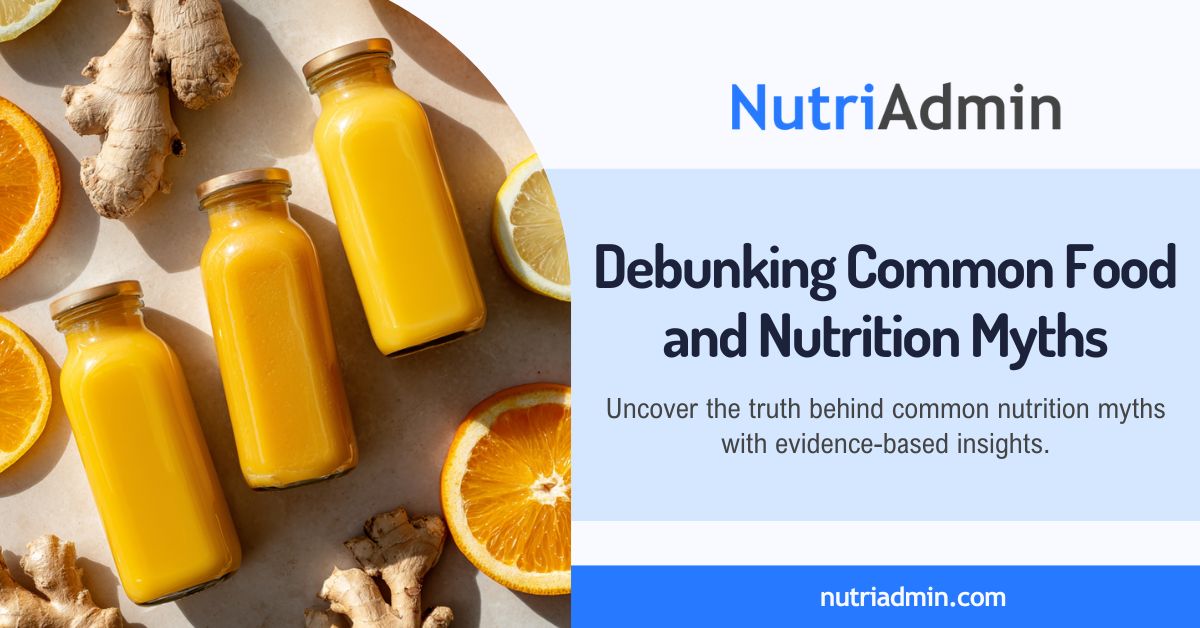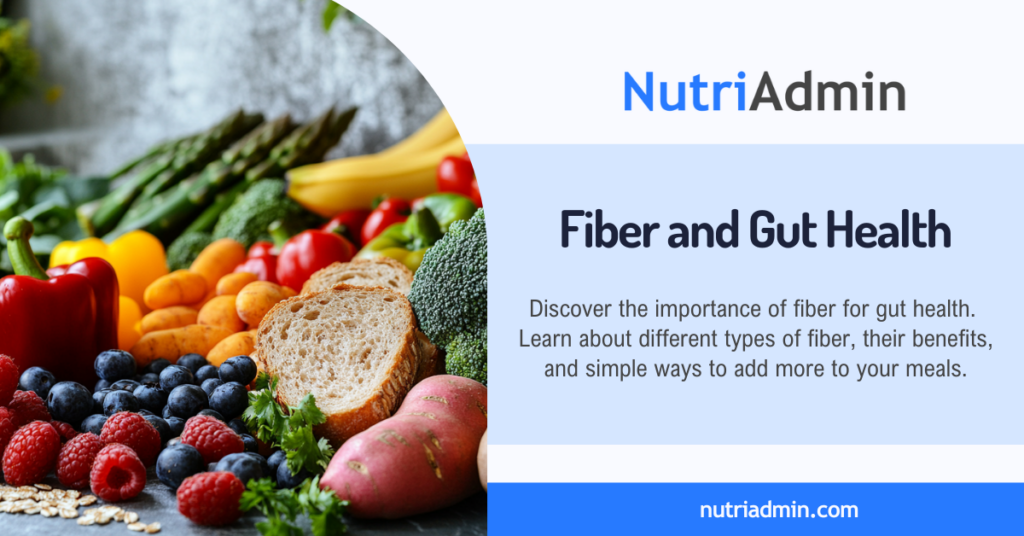Did you know that only 2% of diet and nutrition trends on TikTok are completely accurate according to recent research? This platform is just one of many online sources filled with nutrition and food myths that are easily accessible to anyone today.
In the nutrition and wellness field, myths like avoiding carbohydrates or the necessity of detox cleanses remain common challenges. These misconceptions make it harder to provide evidence-based advice and slow down meaningful behavior change in clients.
This article addresses five common nutrition myths affecting client perceptions today. It presents scientific evidence that contradicts these misconceptions and offers actionable strategies for effectively communicating the facts. Whether you are a dietitian, wellness coach, personal trainer, or nutrition student, understanding these insights will boost your ability to educate clients confidently and promote better health outcomes.
Why Nutrition Myths Persist in Professional Practice
Nutrition myths spread through many sources, from social media to well-meaning friends and family. Simple messages often sound more convincing than complex scientific explanations. Quick tips and dramatic before-and-after stories grab attention more easily than balanced research findings.
Many clients come to us having heard the same myths repeatedly from different sources. This repetition makes false information feel true, even when science says otherwise. The nutrition field also evolves as new research emerges, which can create confusion about what advice to follow.
As professionals, recognizing these common myths helps us provide clear, evidence-based guidance. We can address misconceptions with patience and understanding while sharing accurate information.
5 Common Food and Nutrition Myths Debunked
Myth 1: Carbs Should Be Avoided
Carbohydrates are often viewed as harmful, a belief fueled by diet trends and social media. This nutrition myth persists because people link carbs to weight gain or blood sugar spikes without understanding the role of carbohydrate quality.
Carbohydrates are essential macronutrients that provide energy for brain function, physical activity, and cellular processes. The 2020-2025 Dietary Guidelines for Americans recommend that 45-65% of total daily calories come from carbohydrates.
Quality matters more than quantity when evaluating carbohydrate intake. Complex carbohydrates from whole grains, legumes, and vegetables provide sustained energy, fiber, and essential nutrients. Simple carbohydrates from processed foods and added sugars offer fewer nutritional benefits and can contribute to blood sugar spikes.
Research consistently shows that whole grain consumption reduces the risk of cardiovascular disease, and type 2 diabetes. The Mediterranean diet, rich in complex carbohydrates, remains one of the most evidence-supported eating patterns for long-term health.
Myth 2: Frozen Fruits and Vegetables Are Less Nutritious Than Fresh
The “fresh is best” mentality leads many people to avoid frozen produce, believing it’s nutritionally inferior. This nutrition myth can limit access to affordable, convenient fruits and vegetables.
Frozen produce often retains equal or superior nutritional value compared to fresh alternatives. Fruits and vegetables are typically frozen at peak ripeness, preserving nutrient content through the freezing process.
A comprehensive study published in the Journal of Food Composition and Analysis found that the vitamin content of frozen commodities was comparable to and occasionally higher than that of their fresh counterparts. Research comparing fresh and frozen produce found that the majority of comparisons yielded no significant difference in vitamin C, beta-carotene, and folate levels.
Frozen produce is a convenient, affordable way to include more fruits and vegetables in the diet, especially when fresh options are limited or out of season. The convenience and extended shelf life of frozen options also reduce food waste, making them environmentally and economically beneficial choices.
Myth 3: Detox Diets and Cleanses Are Necessary for Health
Commercial detox programs generate billions in revenue annually by promoting the false premise that bodies accumulate toxins requiring special interventions. This represents one of the most financially motivated myths about nutrition in the wellness industry.
Your liver, kidneys, lungs, and skin naturally eliminate waste products and environmental toxins without requiring expensive supplements or restrictive diets. Research has found no credible evidence that detox diets or cleanses are necessary or effective for healthy individuals.
Detox diets often restrict essential nutrients while your body works harder to eliminate waste products. This creates a counterproductive cycle that may actually impair natural detoxification processes.
Myth 4: Plant-based proteins aren’t complete
This nutrition myth has prevented many people from exploring plant-based protein sources, despite growing evidence of their health benefits and environmental sustainability. The misconception stems from outdated information about plant proteins not being able to provide complete essential amino acids.
While many individual plant proteins may lack certain amino acids, a varied plant-based diet easily provides all essential amino acids throughout the day. Mixtures of plant proteins can serve as a complete and well-balanced source of amino acids for meeting human physiological requirements
Educate clients about protein diversity rather than completeness, emphasizing variety in plant protein sources throughout the day. Combining foods like beans and rice, or nuts and grains, creates complete protein profiles with enhanced nutrient diversity.
Myth 5: Gluten-Free Diets Are Healthier for Everyone
The popularity of gluten-free products has created the misconception that avoiding gluten benefits everyone’s health. This food myth has led to unnecessary dietary restrictions and potential nutrient deficiencies in people without medical reasons for gluten avoidance.
When Gluten Restriction Is Medically Necessary
Gluten-free diets are medically necessary only for individuals with celiac disease (about 1% of the population) , non-celiac gluten sensitivity (estimated at up to 6% of the population), or wheat allergies. For others, eliminating gluten offers no health benefits and may lead to nutritional deficiencies.
Gluten-free foods are often lower in fiber and other micronutrients compared to their gluten-containing counterparts. Research shows that people following unnecessary gluten-free diets often have lower intakes of several key nutrients.
Whole grains containing gluten provide important nutrients including folate, iron, and fiber. People following gluten-free diets without medical necessity may miss these benefits unless they carefully plan alternative sources.
Guiding Clients Through Nutrition and Food Myths
Successfully addressing nutrition myths requires tactful communication strategies that respect client beliefs while introducing scientific evidence. Begin conversations by acknowledging the client’s current understanding and asking open-ended questions about their information sources.
Provide practical demonstrations when possible. Show clients how to read nutrition labels, compare fresh and frozen produce, or identify quality protein sources. Visual aids and hands-on learning reinforce evidence-based messages more effectively than verbal explanations alone.
Stay current with continuing education and peer-reviewed research. Create simple handouts that summarize key points for each myth. Practice explaining complex concepts in simple terms that clients can understand and remember.




